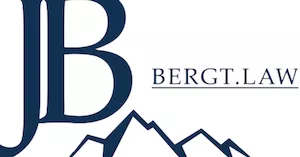- within Finance and Banking topic(s)
- in European Union
- within Law Practice Management topic(s)
- with readers working within the Consumer Industries and Oil & Gas industries
In the densely interconnected architecture of European financial regulation, the recent Government Bill (No. 47/2025 of 8 July 2025) stands out, not because it adds yet another layer of reporting or capital-adequacy metrics, but rather because it silently upgrades the EEA Securitization, EEA PEPP, and EEA Crowdfunding Implementation Acts with a single, yet powerful, lever—a statutory mandate empowering the Government to issue, and periodically update, a national list of "non-co-operative countries and territories for tax purposes", closely mirroring the EU list.
Although the EU "blacklist" is well known to tax professionals, it is not EEA-relevant; consequently, Liechtenstein, together with Iceland and Norway, must create domestic replicas if references in EU level-2 acts are to bite. Liechtenstein, so far, has no such list, yet multiple EU regulations incorporated (or soon to be incorporated) into the EEA Agreement—notably the 2021 Securitisation COVID-Recovery Amendment, the 2019 PEPP Regulation and the 2020 Crowdfunding Regulation—explicitly tie prudential or conduct-of-business consequences to the presence of a counterparty in a listed jurisdiction.
Because Norway and Iceland have announced the lifting of their constitutional reservations for the securitisation amendment "during summer 2025", the Liechtenstein Parliament is pressed to legislate without the usual public consultation, a fact that underscores the political urgency of establishing the list "without delay". Once the amendment statutes enter into force—on the day after promulgation for the EEA Securitization Implementation Act (EEA-VDG) and concurrently with the respective EEA decisions for PEPP and crowdfunding—the Financial Market Authority (FMA) will gain immediate supervisory reach to enforce blacklist-related prohibitions or enhanced due-diligence obligations.
Practical ramifications
- Securitisation special purpose entities (SPEs) must verify that originators, sponsors and underlying assets have no nexus with a black-listed jurisdiction; otherwise, preferential STS treatment may be lost and risk-weighting may spike.
- PEPP manufacturers and distributors face prospectus and key information document (KID) disclosure triggers if underlying investments or service providers are linked to a listed territory, in addition to potential restrictions on long-term investment options.
- Crowdfunding service providers will have to screen project owners and payment channels against the list and could see marketing limitations emerge where tax-haven exposure exists.
- Group-wide policies for KYC/AML, transfer pricing and economic-substance monitoring should incorporate automatic alerts when the EU updates Annex I or II of its list—changes that, by design, will cascade swiftly into Liechtenstein's domestic regulation.
Strategic actions before the list is published
- Conduct a gap analysis mapping existing counterparties and asset flows against EU Annex I & II entries (currently eleven and eight jurisdictions respectively).
- Embed dynamic reference-data feeds into onboarding and transaction-monitoring systems to flag emerging exposures once the Government issues its first ordinance.
- Review contractual representations and warranties to ensure counterparties bear the burden of staying off the blacklist and indemnify for breaches.
- Prepare board-level documentation evidencing oversight; the FMA is expected to look for contemporaneous records once enforcement begins.
- Liaise with advisers early: Bergt Law offers bespoke regulatory mapping and Board training, ensuring that market entrants remain capital-efficient while fully aligned with the forthcoming Liechtenstein ordinance.
Sources: Report And Motion Concerning THE AMENDMENT OF THE EEA SECURITIZATION IMPLEMENTATION ACT, THE EEA PEPP IMPLEMENTATION ACT, AND THE EEA CROWDFUNDING IMPLEMENTATION ACT, No. 47/2025.
Key findings & core statements
- The Bill 47/2025 inserts competence clauses into three EEA-implementation acts, enabling a domestic tax-haven blacklist.
- Adoption is time-critical because Norway and Iceland will finalise their EEA integrations in 2025, triggering simultaneous applicability in Liechtenstein.
- FMA supervision will expand immediately once the ordinance is issued, affecting securitisation, PEPP and crowdfunding businesses alike.
- Entities must update compliance frameworks now, as the ordinance will closely follow the evolving EU list.
- Early preparation delivers a competitive edge, reducing transaction friction, preserving STS (Simple, Transparent, Standardized) eligibility and demonstrating governance maturity to investors.
The content of this article is intended to provide a general guide to the subject matter. Specialist advice should be sought about your specific circumstances.


